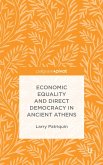The book examines the validity of Hedley Bull's distinction between system and society and argues that the distinction is valid but the boundary line which Bull has drawn is problematic. The book, therefore, redefines the system/society boundary with reference to the mutual recognition of sovereign equality among states. By focusing on Greece's entry into international society, the book shows that the birth and development of international society have been determined by the logic of anarchy rather than the logic of culture.
'Dr Stivachtis achieves the rare distinction of combining an original analysis of a major problem in international theory, with a detailed case study of a significant event in international history, and in turn illuminating important issues in the continuing enlargement of international society. This book provides a welcome bridge over the traditional gulf between 'history' and 'theory' in the study of international relations.' - Christopher Clapham, Professor of Politics and International Relations, Lancaster University








